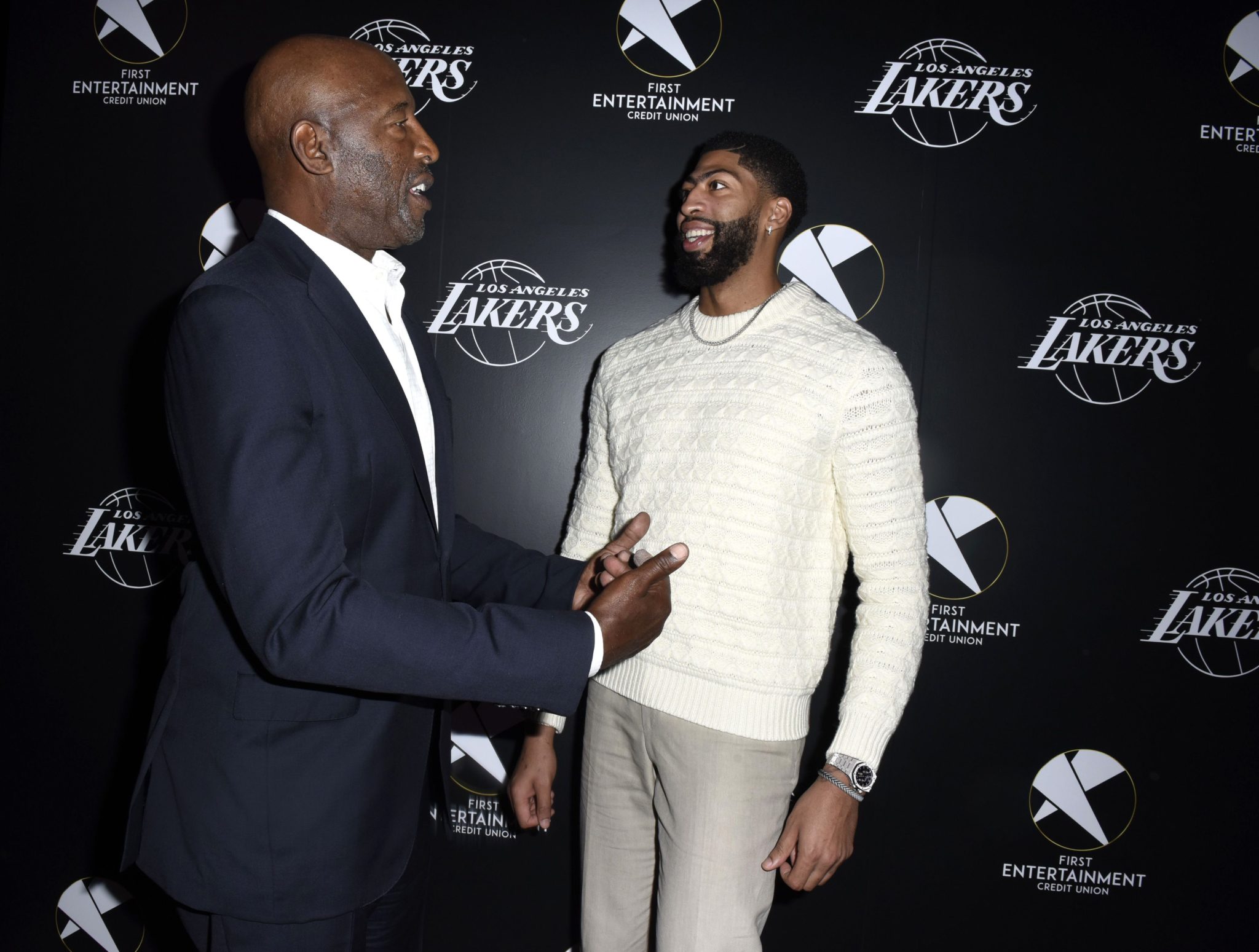
Lakers Legends James Worthy, Robert Horry, Kurt Rambis Talk Business and Basketball
LOS ANGELES -- The notion of the Los Angeles Lakers as a family was on full display during a recent evening in downtown LA, before the coronavirus brought the NBA and much of wider society to a standstill. While Anthony Davis was on stage inside The Theatre at Ace Hotel to announce his brand ambassadorship with First Entertainment Credit Union, nearly all of his current teammates—along with Lakers legends James Worthy, Robert Horry, Kurt Rambis, Derek Fisher and Rick Fox—sat in the audience to support the Purple and Gold’s newest superstar.
But there’s more to the “Lakers family” than championships and on-court accolades. Gaining membership into that vaunted club has also been known to confer a range of perks, from global recognition to business opportunities beyond basketball.
Following AD’s announcement, CloseUp360 joined a roundtable discussion with James, Robert and Kurt to discuss how the game has changed, both on and off the court.
(The following transcript has been edited for clarity and length.)
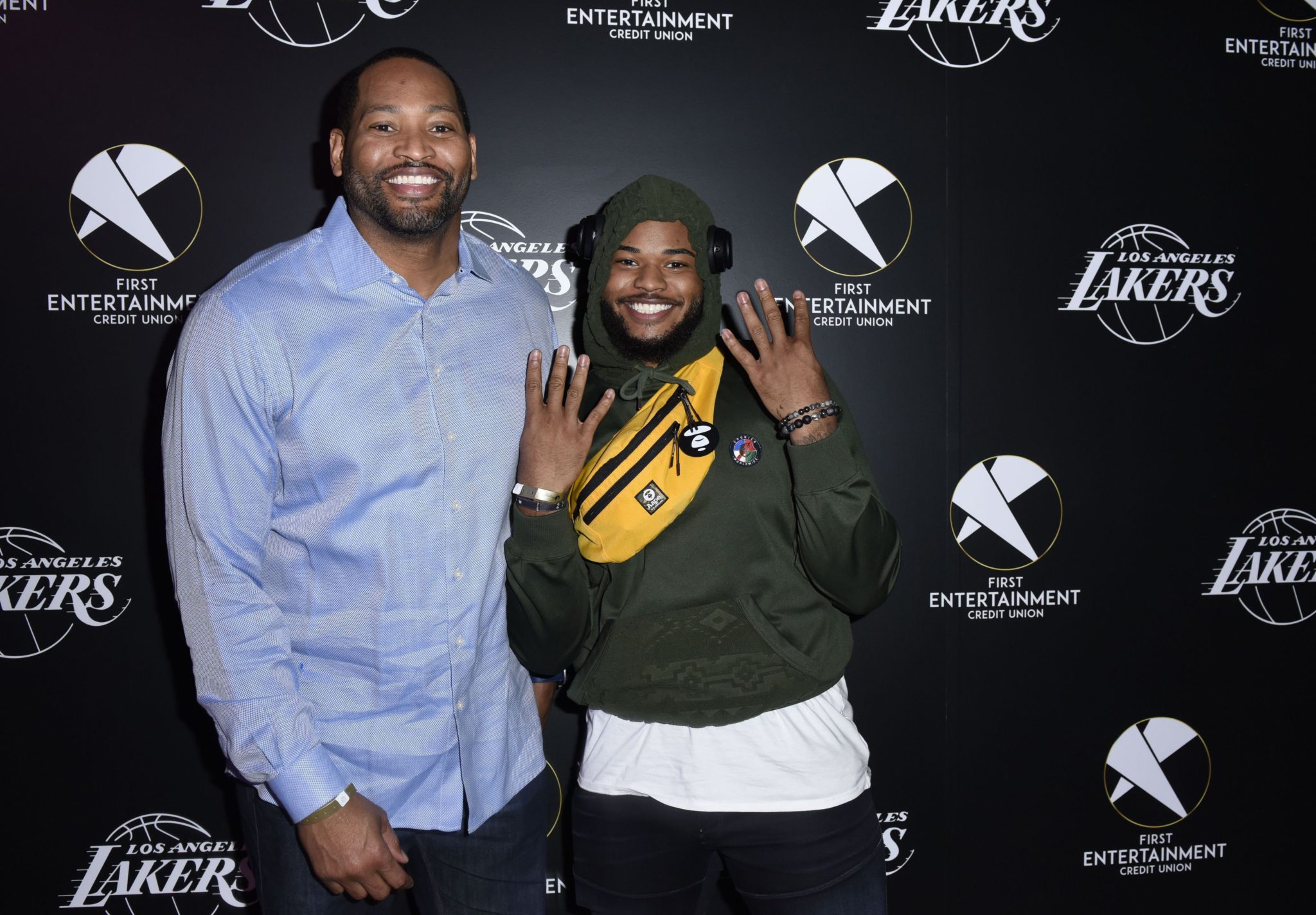
Robert Horry and his son, Camron, came out to support First Entertainment Credit Union's announcement of its partnerships with the Lakers and Anthony Davis. (Vivien Killilea/Getty Images for First Entertainment)
The Lakers global brand ...
Kurt Rambis: The Lakers are a global brand and they're recognized around the world. And because of the past success that the Lakers have had, they've garnered fans all over the world that are very passionate fans with the Lakers. Obviously, a lot of companies want to be associated with winning and the Laker brand, and it's good for the players to parlay their own individual brand that tags along with that. It helps all of the Lakers, it helps the Lakers' brand, when we have good representation from past players that go out and do a great job in the community and build up that relationship with the fans and sponsors, and create this overall global aspect that everything is great and fantastic with the Lakers because then everybody else wants to be associated with it and a part of it.
James Worthy: In conjunction to the Laker brand that Dr. Buss built over time, they've also been very conscious of the communities that support the Lakers throughout Southern California, whether it's Habitat for Humanity or whether it's going into a local school and providing needs that weren't there—computers or whatnot. They've always attached themselves with the community and allowed the community to become a part of their brand. They employ a lot of people that work at—it used to be The Forum, now at Staples Center—whether it's in the parking lot or whatever. So all of that is, we try to support what they're doing, whether it's housing, whether it's financial enhancement. The Lakers have always had their antennas attached to those entities as well.
Robert Horry: Speaking on a level of guys who's been on multiple teams and traveling the world, the Laker brand is one of the biggest brand in sports. People don't even remember me playing for other teams. It wasn't like I was on losing teams. They only remember the Laker brand because once the Lakers come on TV, it's like everything stops. Even when the Lakers were in their highs and their lows, people want to stop because that Laker name and image is so great and so grand and shines so bright, more than any other team's, that people are going to stop and stare. It's just so weird for me that in the travels, it's like, you can be in the backwoods of China or wherever it be, someone has a Laker jersey on. It might not be someone's name; it might just say "Lakers," but you know what that symbol means. It's just fantastic how bright the Laker logo shines.
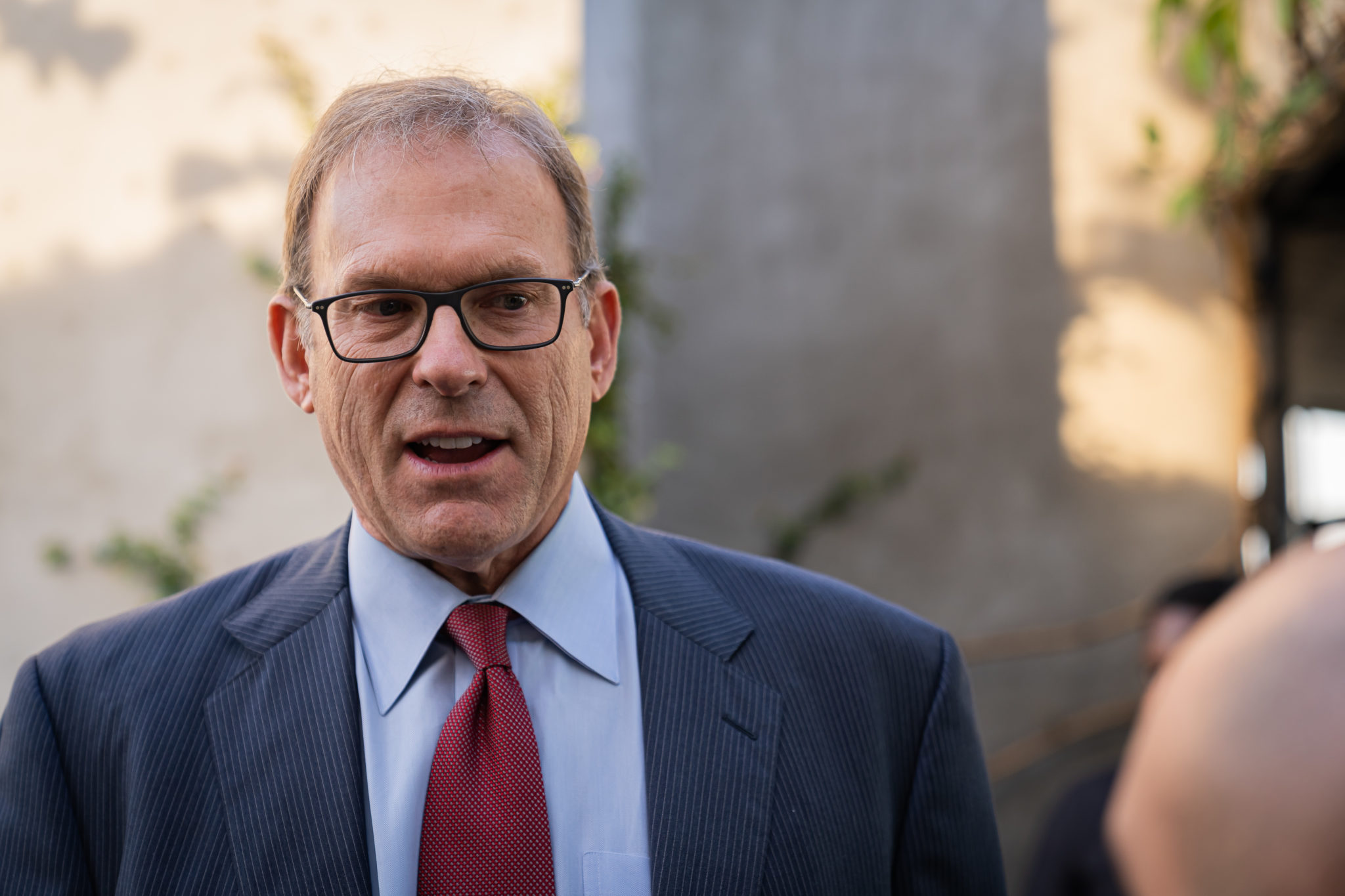
Kurt Rambis won four championships with the "Showtime" Lakers, and is currently a senior basketball adviser for the organization. (Zach Schmidt)
Managing the pressure of having money upon entering the NBA ...
JW: It's difficult. My parents knew nothing about the stock market or about taxes, even. So I was fortunate to have a college coach. But the sooner you involve yourself—a lot of us come in with agents, representation, and we sometimes take their advice a little too much. It's not until you try to learn something yourself and gradually take over things yourself, it could be something as little as paying your own bills or balancing your own checkbook. But you do have to be conscious of how short a career it is, and you cannot support everybody.
That seems to be one of the issues in the NBA: the lack of understanding of how money works. You're getting $1 million. It's really not $1 million. It's like $450,000, and you've gone out and bought a $2 million house, which you got a loan from the bank but you didn't know the interest rate. A lot of times, you find yourself getting into deep trouble without knowing the longevity of a career. You don't have to be an accountant, but you do have to get involved.
RH: You hear all the horror stories of people—I'm not going to name names, but some people who were brand names before the NBA was as big as it is now—saying that their accountant stole from them, they were going broke. So my mindset was to count every dollar, and I learned how to say "no" early at an early age. I remember going to my accountant and he sent me a bill for faxing—that's how old this was—and phone calls. I called him and I said, "Dude, no, you're not charging me for a fax, you're not charging me for a phone call because you're already making this off me, and that should be included." And from that very moment, I knew that people will nickel and dime you if you don't watch them.
And I think that's the biggest key, that when we go talk to rookie seminars, these kids sometimes [say], "Oh, I don't have the time to..." You're telling a lie. You're on a flight going from LA to Chicago, you have time to check your finances. That's the biggest thing that I learned from people before me who were cheated and they got money taken from them: just to watch where your money goes, watch what it's doing and always do a checks and balance.
JW: Sidney Poitier told me one time, he said, "The 20s and 50s you see. It's the dimes and nickels you need to keep up with" [laughs]. The dimes and nickels are the ones that get you.
KR: For me, it was really easy when state and federal taxes were a combined like 70 percent. I wasn't making any money anyway, so I didn't have any money to get taken [laughs]. The advice that I give to young players is to take your contract, cut it in half—government's gonna take that—and then take whatever is left over and spread that out over 10 years. And then, if you live at that rate, you're gonna be fine. You're gonna be able to have money and you're gonna be able to invest and you're gonna be fine with all of that. It's when you don't take those things into consideration and you're spending money too fast, that's part of the reason a lot of players get into trouble.
If you just think, your career is short. There's gonna be a point in time where that money just stops, and that's hard. That's hard for a lot of players to account for. It's a matter of being able to stretch that dollar longer and take all these things into consideration: your expenses and what you want to have, whether it's what care it is or what house you want to live in or raising kids. All of those things have expenses attached to it, so you've just got to be able to monitor it. And if you're doing things in a very conservative way, you're gonna have money towards the end. And if you do it the other way, whenever it runs out, it's hard to recoup.
JW: Think about what most college kids do when they get out of college. They graduate, usually two or three guys living in one house. So I try to tell NBA players: just do what your friends are doing. You don't have to buy Mercedes and buy houses. Golfers do it. They're roommates. Just go get you a nice roommate and live that way. You're in the NBA—you're good. But the thing is, the minute you get money when you've never had it, the first thing you wanna do is start spending. So I always say, just do what your peers are doing. Find you a couple roommates, get you a little Toyota and chill.
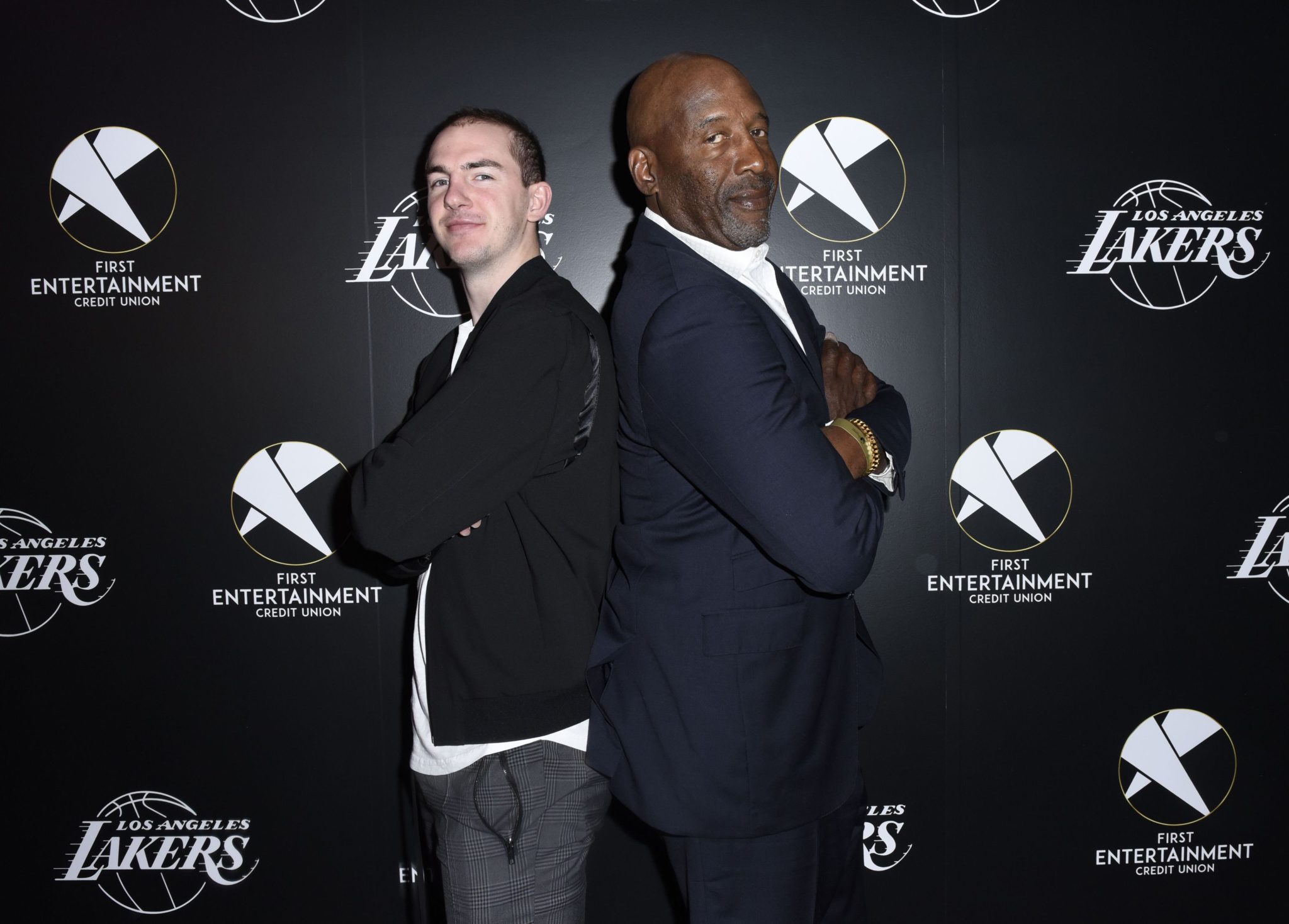
James Worthy's advice to young NBA players, like Alex Caruso (left): "Find you a couple roommates, get you a little Toyota and chill." (Vivien Killilea/Getty Images for First Entertainment)
The difference in the money players make now vs. back when they were playing ...
JW: Humbly speaking, I was the No. 1 draft pick and I think I made $375,000 my first year or $400,000. And I can remember the old veterans, like Bob McAdoo and Maurice Lucas, being, like, "How in the hell you making $400,000 and you ain't played on the floor one time?" I think that David Thompson got that $800,000 deal one year.
RH: My first contract—I was the No. 11 pick in '92—I was making $1 million a year. And so it lets you know how time progresses and how the NBA has grown and has flourished.
KR: I'm gonna start crying [laughs]. I mean, I ended up, after Mitch [Kupchak] got his season-ending injury, being a starter on a championship team and I made $60,000 before tax. That was when tax, both combined state and federal, were probably closer to 70 percent. But I was making more money than my dad who was teaching for 25, 30 years, so that was great money.
JW: Everybody had a little apartment in Fox Hills over there. Dr. Buss owned the building over there.
The physicality of today's game vs. the old game ...
KR: One, it's about protection for the players because they do carry value in entertainment and it increases the value of franchises when they have quality players. Nobody wants to see anybody get hurt, so that's part of it. The other part of it is, the league and fans want to see more scoring, so they've taken a lot of the grabbing, the holding, the physicality out of the game—until the playoffs start, then it all starts coming back in. But they want to see scoring, and that's really what's opened up the game. The three-point shot has opened up the game. It's spaced the floor so that you can increase scoring more. But it's more for the safety of the players. No more clothes-lining, which I just [went] to the free-throw line and shot my two free throws. He would be suspended [today], maybe indefinitely for something like that.
JW: Just a foul. No tech, no nothing.
KR: It's all about the protection of the players and what's really good for the fans. They want to see the players perform. They want to see the grace, the agility, the athleticism. So the league acknowledges that and they want to see that happen out there on the floor, and you're seeing more and more and more of that as players are starting to advance and grow. It's become real artistry out there for players. Their creativity and their ability to express themselves with a basketball is just off the charts right now.
JW: I also think it's a younger fan base. I think, back in the '80s, you'd go to New York, Boston, Chicago. They understood the game and they watched. They knew what a pick was in pick-and-roll. They kind of understood it. And there were certain things you could do. You could ride somebody as long as you didn't extend the arm. If someone came across the lane, you could check. I miss that part of it. But it's more entertaining now. People want to come and they want to see that three. They want to see that dunk...It is [more entertaining]. It's just the nature of the game.
I'm old school. I heard Bill Russell say one time, "They run two plays." For 16 years, they ran 1, and when the team stopped that, they went to 1A. And when they stopped 1A, they went back to 1. Because that's the way the game is supposed to be played. I mean, back in the day, we knew that Robert Parish was setting that pick on Larry Bird, but the way the fundamentals are, if you run it properly, the defense has to give you something. So I miss that part of it, but I've learned to gradually accept the new game. It is what it is. It's grown, it's entertainment, it's global and so, yeah, it's interesting. I would've loved to have seen Michael Cooper or Sidney Moncrief or one of these guys go up against some of these prolific scorers. Not to say that they could stop them, but I would've loved to see that.
KR: That's why it's unfair when everybody asks, "Who's the greatest player to ever play?" Because the rules change. The game has changed. It's disrespectful to all of those people that are the greatest to ever play the game to say one is greater than the other one, 'cause the rules are different. The game is different. The style of play is different. It's just, you have to accept the greatness in all of those players without trying to put somebody at the top.
RH: That's why all the records will be broken because, when we played, it was probably 60 possessions a game. Now it's double, so you're gonna see these guys scoring more points because they're getting more shots up. It's just the evolution of the game. If you go back and look at the game when it first started, they all went right. Nobody ever wanted to go left; they all went right. It's just a transition of the game getting bigger, better and faster because I'm learning from James. I'm taking what James has taught me and making it better. I'm learning from Kurt, taking what Kurt has taught me and making it better. It's just like what you do. If you think about it, it's the same thing as the automotive field. A car nowadays is faster, lighter and more graceful. That's just how the game has changed.
JW: Parking itself.
RH: Exactly [laughs].
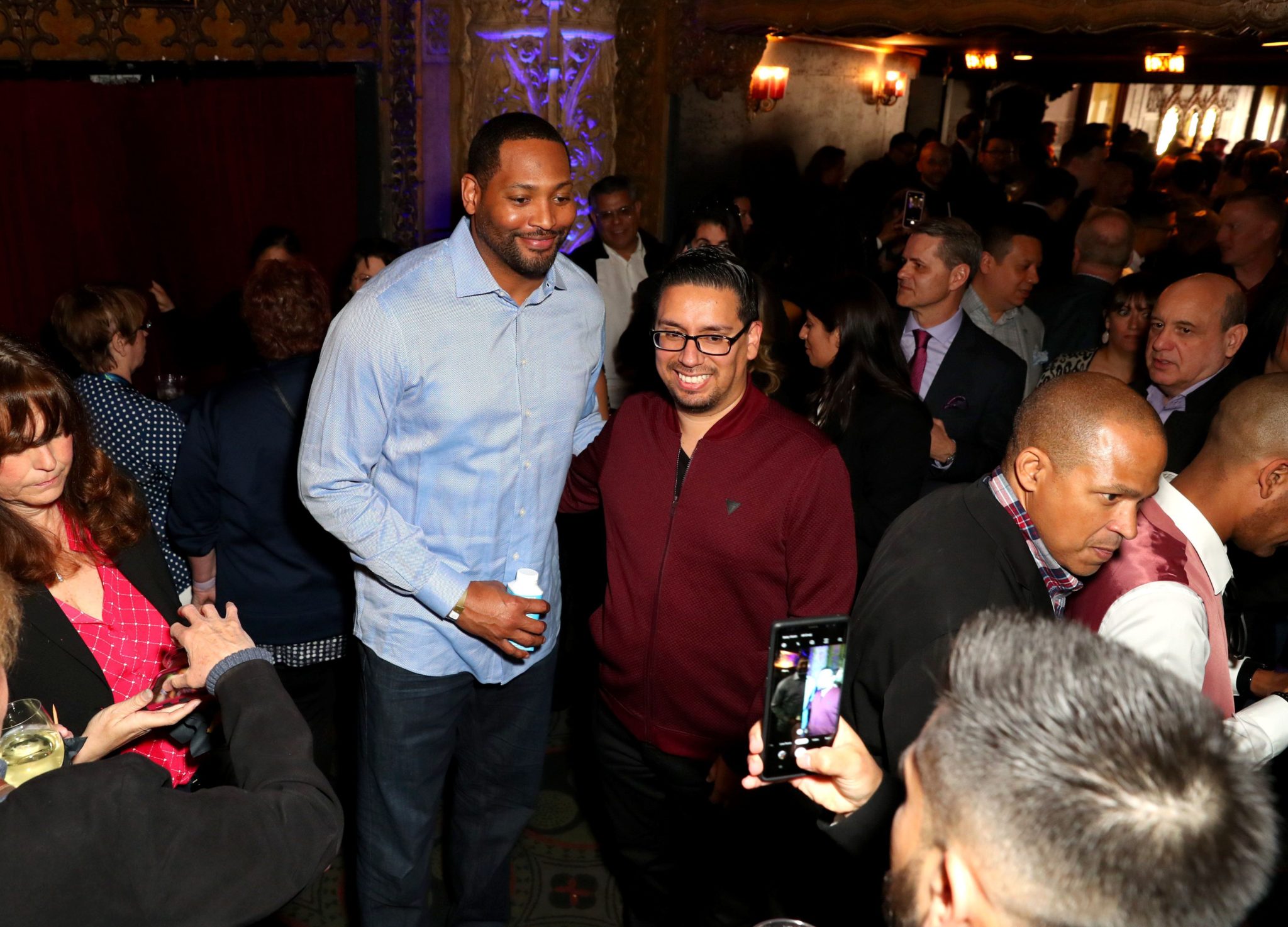
As the No. 11 pick in the 1992 NBA draft, Robert Horry earned just under $1 million during his rookie season. Last year's No. 11 pick, Phoenix Suns forward Cameron Johnson, was due to earn more than $4 million in 2019-20. (Joe Scarnici/Getty Images for First Entertainment)
Steve Ballmer, the owner of the Clippers, potentially buying The Forum, the former home of the Lakers ...
JW: The move took place downtown. We never forgot The Forum. With the football stadium over there, it's come back. I like Steve. He's a good guy and he's gonna build a stadium, try to move in on our fans over there. That's gonna be tough. But I'm all about moving forward and doing what's good for the city. If it's gonna help Inglewood, if it's gonna bring more employment and all that kind of stuff, I'm all for that. The Lakers' brand is what it is. It's not going anywhere, regardless of what he does. I'm okay with it.
Today's players getting involved in business during their on-court careers ...
KR: Robert touched on that when he was talking about players learning and developing their skill set learning from others. That's what players are doing now, too. They're taking what other players have done—either post-career or somebody like LeBron [James] that's doing it in his career—and starting to increase the level of their brand and their interest and their curiosities and their ways to give back. You have no greater platform than while you're actually on stage to be able to recognize all of those opportunities.
All the young players are learning from players that are advancing their post-career opportunities, but they're doing it while it's going on. Endorsing products is one thing, but getting involved with a company and actually being a part of a company and then growing something that you're interested in, a school like LeBron has created, I think those are all great things. The players are really understanding that they've got to give back. They've got to do something more for the world, their community, their society, than just be basketball players. There's greater things that they can do than just be basketball players.
RH: I think also their voice can be heard. I know when we were growing up, if you was gonna talk about politics, we would run out the door. But now, they have the voice and the platform to do so many things because, socially, they have those avenues that they can put that message out there. And so, I'm really proud that these guys [are doing that] now, and the NBA also allowing these guys to do stuff socially—not just on the social media aspect, but on the social platform and giving back and giving social awareness. That's a great thing, too, because I think a lot of times, we don't give them enough credit for what they're trying to do socially—not social media, but socially, making social awareness to where they're conscious of this, conscious of that. I'm really proud that some of the guys are using that platform to try to make this community a better community.
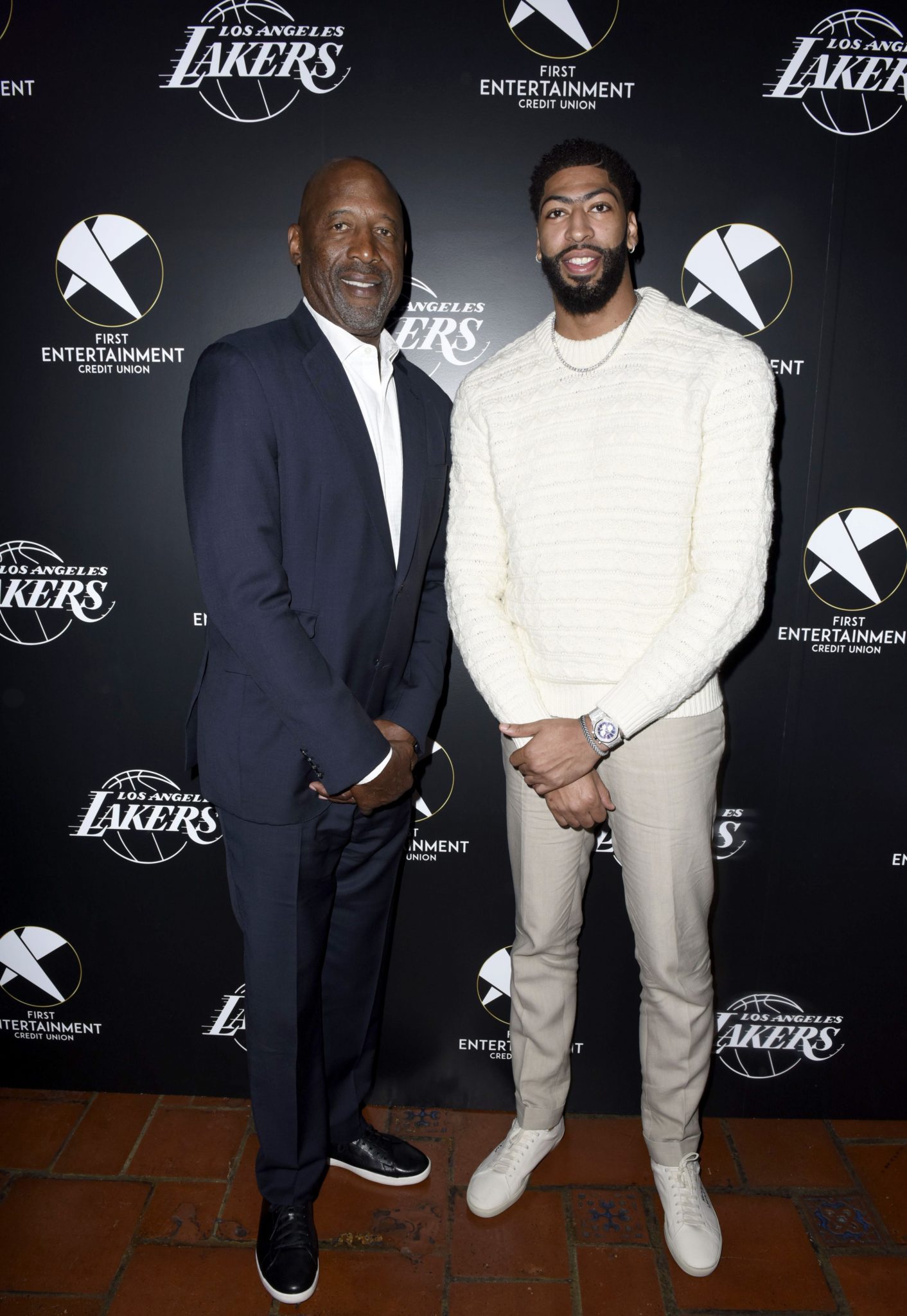
James appeared in seven All-Star Games, won three titles and was named MVP of the 1988 NBA Finals during his 12 seasons with the Lakers. (Vivien Killilea/Getty Images for First Entertainment)
Anthony Davis as a face of the Lakers going forward, on and off the court ...
RH: 'Cause LeBron does too much shit already [laughs]. Just kidding. I'm kidding. I'm only kidding.
KR: He's a terrific human being. He's an exceptional, young man. He's articulate. He's well-known. He's recognized. And like LeBron, he wants to go out and do things. He wants to better the world. He wants to better our society and have this co-branding with the Lakers. He understands all of that. So for him to be able to be put in this situation, I think it's gonna be a win-win for him and for any business that he gets involved with.
JW: Without question. When you think of where LeBron comes from, you've heard his story. In a lot of cases, we used to be what we're trying to help out. You know, some of us have been homeless. Some of us have come from illiteracy. So I think when you come from that type of thing, you can identify with it and you have a platform, which is huge now. When we came in, our platform wasn't as huge as they have, and we did what we could do through the Lakers Youth Foundation, our own charities or whatnot. But the platform is so huge now that even the 14th guy on the team could have a podcast and keep things going. It's just amazing that guys are conscious enough and willing enough to understand the guys who came before them, and that they're willing to partake in being humanitarians and making the communities in which they live a better place to be.
KR: These guys have an opportunity to make a lot more off the court than they do on the court, and then they can parlay that into helping the community and building businesses and employing people. And they're starting to have this bigger world vision of themselves and what they're capable of doing. I think it's terrific that these guys are really doing those things.
RH: The key word there is brand. Nobody ever thinks about it and says, "Oh, the AD brand." He's speaking like he's The Rock, right? But these guys know that their brand now carries weight, and that's the main thing: understand your self worth, and I think these guys are really conscious of that.
Josh Martin is the Editorial Director of CloseUp360. He previously covered the NBA for Bleacher Report and USA Today Sports Media Group, and has written for Yahoo! Sports and Complex. He is also the co-host of the Hollywood Hoops podcast. Follow him on Twitter and Instagram.

Instagram
Twitter
Error: Could not authenticate you.
Facebook
Subscribe